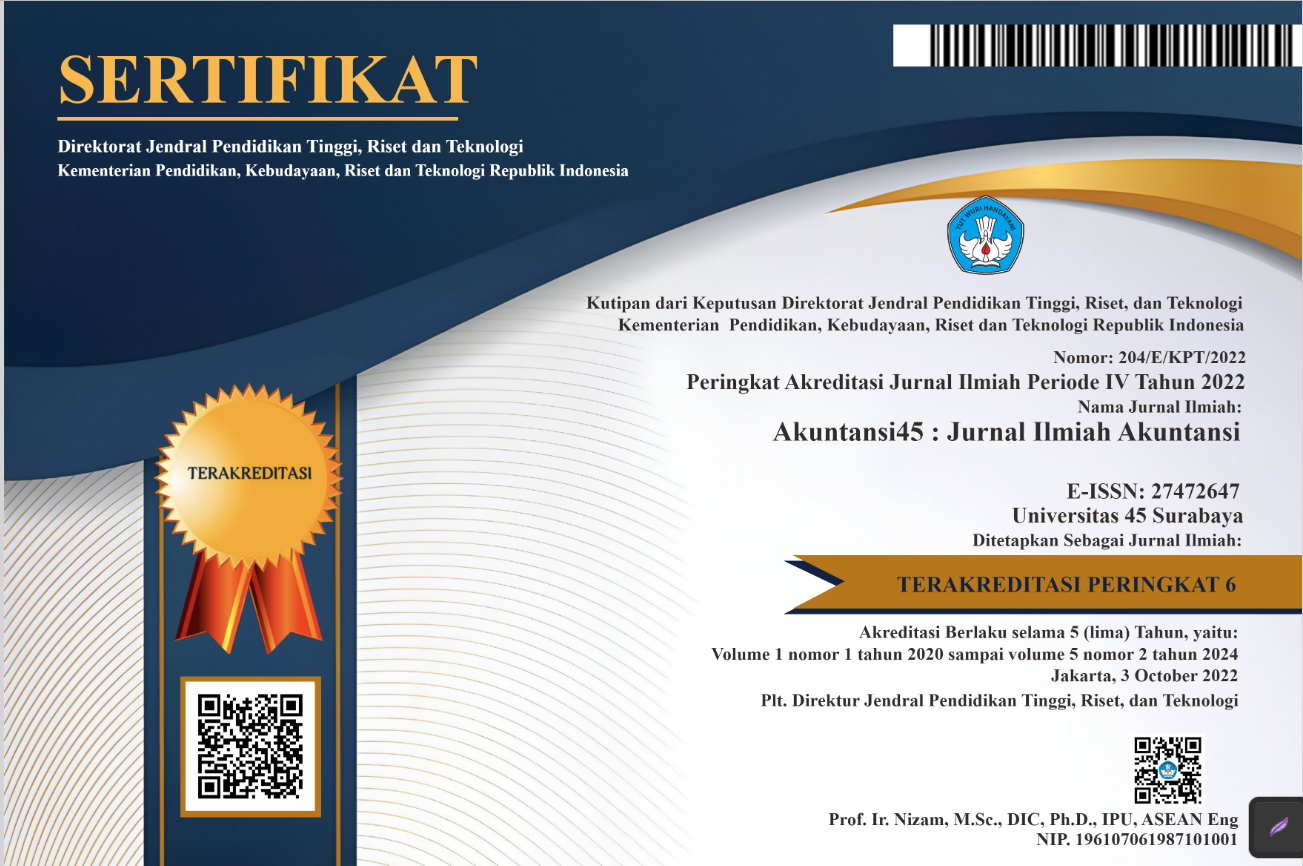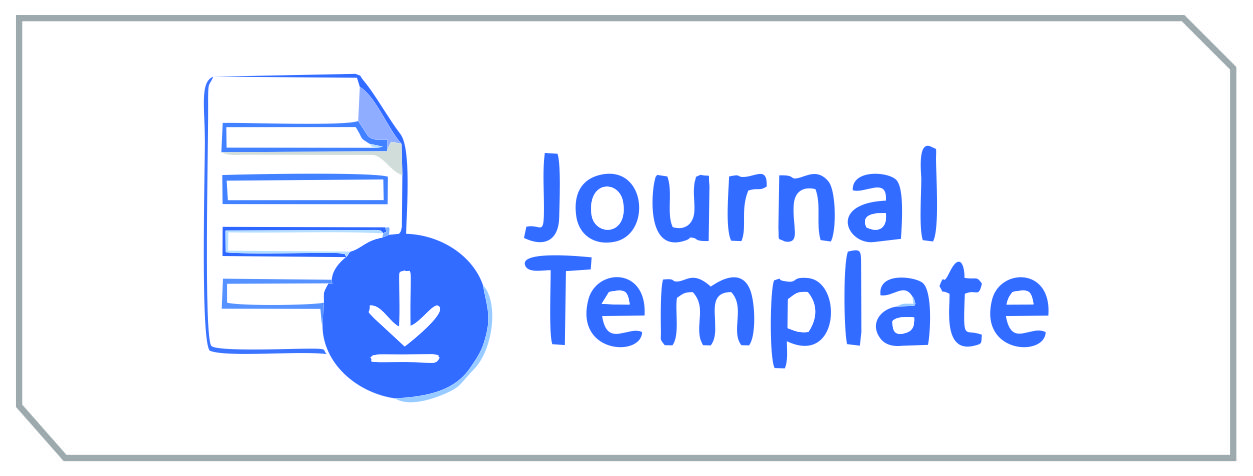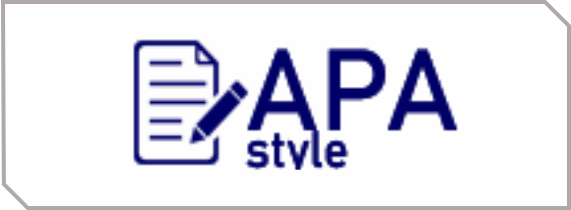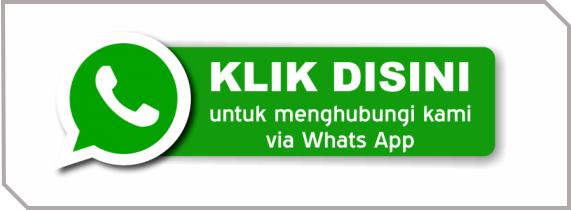Literasi Digital dalam Memediasi Pengaruh Transformasi Digital terhadap Peran Akuntan Manajemen
DOI:
https://doi.org/10.30640/akuntansi45.v6i1.4413Keywords:
Digital Transformation, Digital Literacy, Role of Management Accountants, and Accounting StudentsAbstract
This study aims to determine the role of digital literacy in mediating the influence of digital transformation on the role of management accountants among students of the Accounting Study Program, Faculty of Economics and Business, University of Nusa Cendana. This study applies a quantitative approach, with data collected through questionnaires completed by respondents. The sample consisted of 100 students from the Accounting Study Program, selected using a random sampling method. Data analysis was conducted using the Partial Least Square (PLS) method with the SmartPLS 3.0 application. The direct test results show that digital transformation has a positive and significant effect on both digital literacy and the role of management accountants. Digital literacy also has a positive and significant effect on the role of management accountants. The indirect test results reveal that digital literacy is proven to significantly mediate the relationship between digital transformation and the role of management accountants.
References
Arnaud, J., São Mamede, H., & Branco, F. (2024). The relationship between digital transformation and digital literacy: An explanatory model—Systematic literature review. F1000Research, 13, 253. https://doi.org/10.12688/f1000research.146991.1
Asosiasi Pendidikan Tinggi Akuntansi Indonesia. (2023). Survei nasional integrasi teknologi digital dalam kurikulum akuntansi di Indonesia.
Davis, F. D. (1989). User acceptance of information systems: The technology acceptance model (TAM). https://www.researchgate.net/publication/30838394
Fitriani, D. (2023). Pengaruh sistem informasi akuntansi dalam penerapan siklus produksi dan pengendalian internal untuk meningkatkan efektivitas kinerja UMKM. JKPIM: Jurnal Kajian dan Penalaran Ilmu Manajemen, 1(1).
Ghozali, I. (2021). Partial least squares: Konsep, teknik, dan aplikasi menggunakan program SmartPLS 3.0 (2nd ed.). Badan Penerbit Universitas Diponegoro.
Gilster, P. (1997). Digital literacy. Wiley.
Ifada, L. M., & Komara, A. (2023). Digital literacy and the changing landscape of the accounting profession: The role of technology adoption model. Jurnal Kajian Akuntansi, 7(1), 125. https://doi.org/10.33603/jka.v7i1.8454
Marques, S., Gonçalves, R., da Costa, R. L., Pereira, L. F., & Dias, A. L. (2023). The impact of intelligent systems on management accounting. International Journal of Intelligent Information Technologies, 19(1). https://doi.org/10.4018/IJIIT.324601
Moll, J., & Yigitbasioglu, O. (2019). The role of internet-related technologies in shaping the work of accountants: New directions for accounting research. The British Accounting Review, 51(6). https://doi.org/10.1016/j.bar.2019.100833
Nasrah, H. (2023). Akuntansi manajemen dalam era digital. Jurnal Embistek, 2(2). https://embistek.org/jurnal/index.php/embistekvolume
Richins, G., Stapleton, A., Stratopoulos, T. C., & Wong, C. (2017). Big data analytics: Opportunity or threat for the accounting profession? Journal of Information Systems, 31(3), 63–79. https://doi.org/10.2308/isys-51805
Royyana, A. (2020). Strategi transformasi digital pada PT. Kimia Farma (Persero) Tbk. Journal of Information Systems for Public Health, 5(2), 15–32.
UNESCO. (2018). A global framework of reference on digital literacy skills for indicator 4.4.2.
UNESCO. (2023). Global education monitoring report 2023: Technology in education.
Venkatesh, V., Morris, M. G., Davis, G. B., & Davis, F. D. (2003). User acceptance of information technology: Toward a unified view. MIS Quarterly, 27(3), 425–478.
Yoo, Y., Boland, R. J., Lyytinen, K., & Majchrzak, A. (2012). Organizing for innovation in the digitized world. Organization Science, 23(5), 1398–1408. https://doi.org/10.1287/orsc.1120.0771
Yulianti, M., Asniati, & Juita, V. (2021). Pengaruh keahlian akuntansi, literasi digital dan literasi manusia terhadap kesiapan kerja calon akuntan di era disrupsi teknologi digital. Ekonomis: Journal of Economics and Business, 5(2), 449–456. https://doi.org/10.33087/ekonomis.v5i2.389
Downloads
Published
How to Cite
Issue
Section
License
Copyright (c) 2025 AKUNTANSI 45

This work is licensed under a Creative Commons Attribution-ShareAlike 4.0 International License.









